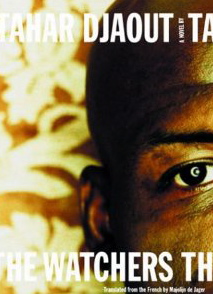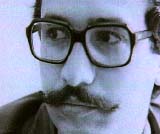Compassionate tale of lives with little hope.
 Recreating the traumas that Third World citizens face every day, Djaout offers vivid pictures of their complex but fragile lives. Here, in an unnamed country, presumably Algeria, government bureaucrats are concerned only with protecting themselves, their jobs, and their kickbacks, their fear of change so ingrained that any hope of modernization and real progress is squelched. The average citizen tries to remain anonymous, making do in a society which does not reward excellence. As one bureaucrat explains, “…the words ‘creation’ and ‘invention’ are sometimes condemned because they are perceived as heresy, a questioning of what exists already…of the faith and the prevailing order.”
Recreating the traumas that Third World citizens face every day, Djaout offers vivid pictures of their complex but fragile lives. Here, in an unnamed country, presumably Algeria, government bureaucrats are concerned only with protecting themselves, their jobs, and their kickbacks, their fear of change so ingrained that any hope of modernization and real progress is squelched. The average citizen tries to remain anonymous, making do in a society which does not reward excellence. As one bureaucrat explains, “…the words ‘creation’ and ‘invention’ are sometimes condemned because they are perceived as heresy, a questioning of what exists already…of the faith and the prevailing order.”
Menaour Ziada and Mahfoud Lemjad, men of different generations who never meet, illuminate these themes. Menaour, an old soldier living in a town near the capital, observes lights at night in a nearby, previously unoccupied, house. Bored, and fearful of “dangerous conspirators,” he alerts his acquaintances, all former veterans of the civil war who have vowed “to struggle till their dying breath never to let the flame of patriotism in them be snuffed out.” In fact, the house is being used temporarily only by Mahfoud, a young physics teacher, putting the finishing touches on his invention of a new loom, which he wants to patent. Alerted to the “suspicious” activities, however, the bureaucracy soon turns Mahfoud’s life into a nightmare in which he must battle unknown enemies, the status quo, and officials who themselves fear being tainted by the accusations against him.
Telling his story in the present tense, Djaout imbues it with vitality and immense feeling, revealing the palpable frustrations in the lives of both Menaour, who misses the simple country life and friendships he once enjoyed, and Mahfoud, whose creativity is regarded as irrelevant. Though he himself is religiously indifferent, Mahfoud and others like him face potential dangers from the very religious, in this case Mahfoud’s brother, a mediocrity, who “in religious devotion…is looking for spiritual compensation” and may become an informer. Descriptions of nature are breathtaking, and the revelations of the characters’ inner longings and thoughts are often unique (a sick child trying to read an adventure story which is too difficult is particularly memorable). Djaout’s striking use of irony finds its ultimate expression in Mahfoud’s invention of a loom and his celebration of women, who play no active role in this society. A powerful story of frustrated hopes.
ALSO by Djaout: THE LAST SUMMER OF REASON
Notes: The author was gunned down at the age of 39 in front of his family by the Armed Islamic Group, in 1993, despite the fact that he was a Muslim. The author’s photo appears on http://www.abc.net.au.
